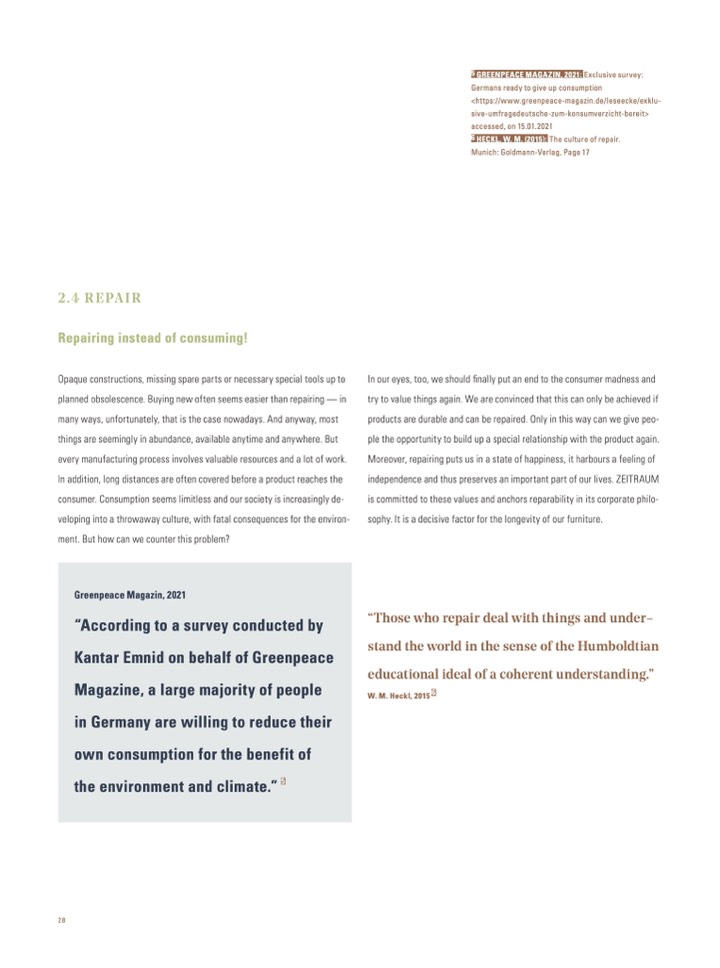
2.4 REPAIR
Repairing instead of consuming!
Opaque constructions, missing spare parts or necessary special tools up to
planned obsolescence. Buying new often seems easier than repairing — in
many ways, unfortunately, that is the case nowadays. And anyway, most
things are seemingly in abundance, available anytime and anywhere. But
every manufacturing process involves valuable resources and a lot of work.
In addition, long distances are often covered before a product reaches the
consumer. Consumption seems limitless and our society is increasingly de-
veloping into a throwaway culture, with fatal consequences for the environ-
ment. But how can we counter this problem?
In our eyes, too, we should finally put an end to the consumer madness and
try to value things again. We are convinced that this can only be achieved if
products are durable and can be repaired. Only in this way can we give peo-
ple the opportunity to build up a special relationship with the product again.
Moreover, repairing puts us in a state of happiness, it harbours a feeling of
independence and thus preserves an important part of our lives. ZEITRAUM
is committed to these values and anchors reparability in its corporate philo-
sophy. It is a decisive factor for the longevity of our furniture.
“Those who repair deal with things and under−
stand the world in the sense of the Humboldtian
educational ideal of a coherent understanding.”
W. M. Heckl, 2015
6
5 GREENPEACE MAGAZIN, 2021: Exclusive survey:
Germans ready to give up consumption
<https://www.greenpeace-magazin.de/leseecke/exklu-
sive-umfragedeutsche-zum-konsumverzicht-bereit>
accessed, on 15.01.2021
6 HECKL, W. M. (2015): The culture of repair.
Munich: Goldmann-Verlag, Page 17
Greenpeace Magazin, 2021
“According to a survey conducted by
Kantar Emnid on behalf of Greenpeace
Magazine, a large majority of people
in Germany are willing to reduce their
own consumption for the benefit of
the environment and climate.”
5
28

